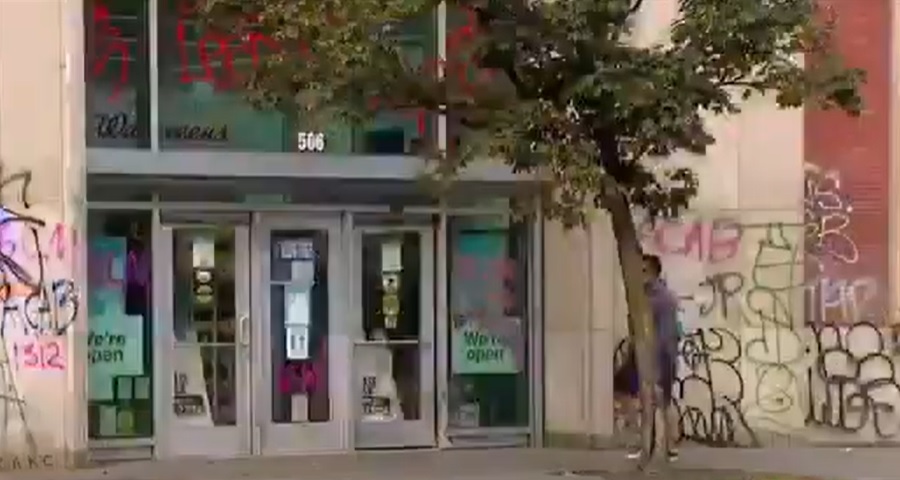
By Steve Pomper
Like most rookie cops, when I was first on the job, I did a lot more traffic enforcement than I did later in my career. Generally, the more years on the department, the fewer traffic stops a patrol officer will do. But, with all the talk of equity, these days, I recall some subtle ancillary issues I used to think about.
As I became experienced dealing with gang members, drug dealers, and other career criminals, I wondered about the “equity” in how cops and prosecutors used their discretion. I realized there are always trade-offs and finding balance in law enforcement, but to what end? For example, most ordinary people will never have a warrant issued for their arrest. Gang members, drug dealers, and career criminals often have outstanding warrants.
When investigating people for suspicious activity or suspected crimes, officers may learn a person has a warrant. If it was a felony warrant, the officer will nearly always make an arrest. Same if it were a high bail or domestic violence misdemeanor warrant.
However, with low bail misdemeanor warrants, sometimes officers can use the threat of arrest as leverage to gather information or gain cooperation. In these cases, officers may give a person a chance to clear his or her warrant themselves. If they’re stopped again and still have the warrant, off to the pokey they go.
This is where equity comes in, though. I thought about how, after giving a criminal a “break” on a small warrant, officers would make traffic stops and sometimes issue expensive citations to normally law-abiding people. The criminal gets a warning, but the ordinary citizen does not.
Now, just because cops let some criminals off for small warrants doesn’t mean a driver committing a traffic infraction doesn’t—pardon the pun—warrant a citation. If the violation involved dangerous driving, cite away. But, with minor infractions, where’s the equity? Where’s the balance? I’m not saying I know the answer. But since everyone’s talking about equity, I just noticed this inequity. Today, the inequities are worse, but not in the way the Left thinks.
For example, the city of Seattle issues this insulting notice to victims of vandalism: “The City of Seattle has noticed illegal graffiti at the above-listed address.
“Despite Seattle being a beautiful place to call home, Graffiti [sic] is becoming a serious problem facing our city. It’s not only destructive; it makes citizens feel less secure and lowers property values. Taking prompt, proactive steps to report and remove graffiti is the best way to prevent it from occurring in your community and will help keep our city clean.
“The City needs your help to keep Seattle a clean and safe place for its residents. The City of Seattle *Graffiti Nuisance Ordinance* requires property owners to remove graffiti found on their property within 10 calendar days. If the graffiti is gang or hate related, it must be removed within 48 hours (Seattle Municipal Code 10.07.010 et. seq.) Failure to remove graffiti within the above time-period can lead to fines and legal action against the Property Owner [sic].”
This is how the city treats taxpaying homeowners while at the same time it allows—encourages—BLM and Antifa to rampage throughout the city destroying with virtual impunity. Last summer the city even surrendered several city blocks, and its residents and business owners, to the CHOP/CHAZ lawlessness.
The discussion might be somewhat theoretical, but there are some real concerns political leaders should think about that affect a community’s collective consciousness. What does the soccer mom think when, after getting a traffic ticket for $136 or being forced to pay to clean graffiti off her property, she watches the evening news and sees people downtown stealing and destroying at will with no consequences. How can she and those like her not lose respect for all laws—all authority?
Today, we see this inequity on steroids and going beyond traffic tickets, graffiti, and small warrants. It has gone to police not enforcing certain laws against certain protected classes of people. “Homeless” criminals get away with committing what so-called prosecutors call “survival crimes.” Theft, trespassing, urinating or defecating in public, etc.
In some jurisdictions, prosecutors won’t charge even for resisting arrest. Yet, political leaders still emphasize traffic enforcement and cleaning graffiti ordinances against ordinary taxpayers. Those folks the city will enforce the law against, while that same time protecting repeat street criminals.
Having homeowners, crime victims, clean graffiti is not the best way to stop property damage. Arresting and prosecuting those who commit property damage with graffiti “is the best way to prevent it from occurring.”
But that’s where we are now, right? Decent people not only have to incur expenses for cleaning supplies but also, they have to make time to clean it themselves or hire someone to do it, while actual criminals are let off scot-free. The obvious answer to better balance this inequity is to enforce the law equally and uniformly, judging each case on its own merits.
But, until that happens, people should question their political leaders about issuing expensive civil infractions against normally law-abiding people, while not prosecuting normally lawbreaking people for committing real crimes. This only re-victimizes crime victims by making them responsible for crimes committed against them.
Another obvious answer: Vote bad leaders out of office.